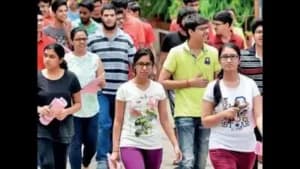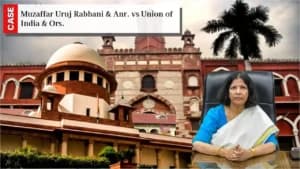The Supreme Court of India, on July 25, 2025, permitted the Kerala Government to withdraw two petitions it had filed in 2023 against the Governor of Kerala over delays in providing assent to bills passed by the state legislature.
The bench, comprising Justice PS Narasimha and Justice AS Chandurkar, allowed the withdrawal while rejecting the objections raised by the Central Government. The Centre wanted the petitions to be heard along with the pending Presidential reference under Article 143 regarding timelines for Governors to act on bills.
“They want to withdraw it. If they were asking us to dispose of the petitions in terms of the judgment, that is a different issue,” – Justice Narasimha
Senior Advocate KK Venugopal, appearing for Kerala, made it clear that the State simply wished to withdraw the petitions and not pursue the matter any further.
However, Solicitor General Tushar Mehta and Attorney General R Venkataramani opposed the withdrawal. They argued the petitions had wider implications and should be heard along with the President’s reference. AG R Venkataramani said:
“It is not that they are withdrawing it simplicitor because they don't want to pursue this issue... So why should it be allowed to be withdrawn?”
Read also: Supreme Court Petition Seeks POSH Act Implementation for Political Parties
Venugopal stood firm, responding:
“I am not relying upon anything. I am withdrawing it.”
Ultimately, the court ruled in favour of Kerala’s request to unconditionally withdraw the petitions. The bench made it clear that a petitioner cannot be forced to continue litigation, especially when they have not asked for disposal based on an earlier judgment.
Background of the Case
In 2023, the Kerala Government filed a writ petition in the Supreme Court, questioning the Governor’s inaction on several bills related to State Universities and Cooperative Societies, some pending for 7 to 24 months.
After the Court issued notice on November 20, 2023, the Governor referred 7 bills to the President. On November 29, 2023, the then CJI DY Chandrachud observed:
“The power of the Governor cannot be utilised to pause the law-making exercise of the legislature.”
This observation was made in reference to a prior judgment concerning the Punjab Governor (November 23, 2023), where it was clarified that Governors do not have veto power in such matters.
Later, on February 29, 2024, the President withheld assent for four bills and approved three. The Kerala Government challenged this decision, arguing that no reasons were given for rejecting the bills. A second writ petition was filed in March 2024, which was not listed in the current hearing.
The second petition was a Special Leave Petition (SLP) challenging the Kerala High Court’s dismissal of a PIL that sought timely guidelines for Governors to act on bills.
With the Presidential reference hearing now scheduled to begin in mid-August 2025, notices have been issued to the Union and all States.
“Being dominus litis, a litigant cannot be forced to pursue a petition it wants to withdraw.” – Supreme Court’s observation
Case Title: THE STATE OF KERALA AND ANR. v. HONBLE GOVERNOR FOR STATE OF KERALA AND ORS.|W.P.(C) No. 1264/2023 and THE STATE OF KERALA AND ANR. v. P.V.JEEVESH AND ORS|Diary No. 46812-2023










